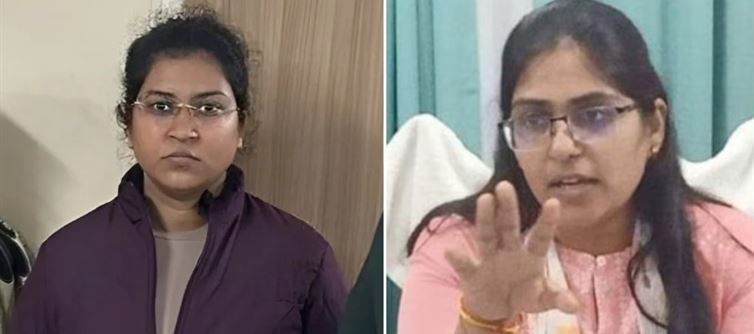
The first case involves Jyoti Maurya, a Sub Divisional Magistrate (SDM) from Uttar Pradesh, whose husband, sanitation worker Alok Maurya, accused her of abandoning him after achieving success. He claims he supported her education, only to be left behind once she cleared the civil services exam and secured a top post. His tearful video in 2023 went viral, sparking the “Jyoti Maurya Bewafaa Hai” trend. Beyond marital discord, Alok accused her of infidelity, corruption, and even plotting his murder. Yet despite such serious allegations — and the social uproar that followed — Jyoti continues in her powerful government post, untouched by suspension, inquiry, or official accountability.
The second case is even more tragic. On december 9, 2024, Atul Subhash, a Bengaluru-based professional, was found dead in his apartment. A 24-page suicide note and an 81-minute video laid bare his despair: an ugly divorce, denied access to his son, and alleged financial harassment where his in-laws demanded ₹3 crore as a settlement. In his final words, Subhash directly named his wife, Nikita Singhania, her mother, brother, and even a judge as being complicit in his mental torture. His death shook many, but the aftermath was predictable — his wife and in-laws were arrested for abetment of suicide, only to be released on bail a month later. Meanwhile, Nikita continues with her life, her professional career unaffected, while Atul’s story fades from public memory.
These cases underline a brutal truth: when men suffer in marriages, their lives seem to carry little value in the eyes of the system. Even after allegations of infidelity, corruption, harassment, and abetment of suicide, the women involved face no meaningful professional consequences. Contrast this with how quickly men are suspended, jailed, or lose their jobs when accusations are leveled against them, even before trial. India’s judiciary and institutional framework, built on decades of women-centric activism, has swung so far that it often overlooks the possibility of men being victims.
Every time a case like Atul’s surfaces, social media erupts with sympathy, but little structural change follows. Men continue to be denied custody of their children, forced into crippling financial settlements, and painted as villains by default in marital disputes. The irony is stark: women claim systemic inequality, yet when the roles are reversed, the system itself appears rigged against men.
Unless india begins to view gender justice through the lens of fairness, not political correctness, more men will continue to meet the same fate as Atul — their pain dismissed, their careers destroyed, their final cries for help silenced by a judiciary that refuses to listen.




 click and follow Indiaherald WhatsApp channel
click and follow Indiaherald WhatsApp channel